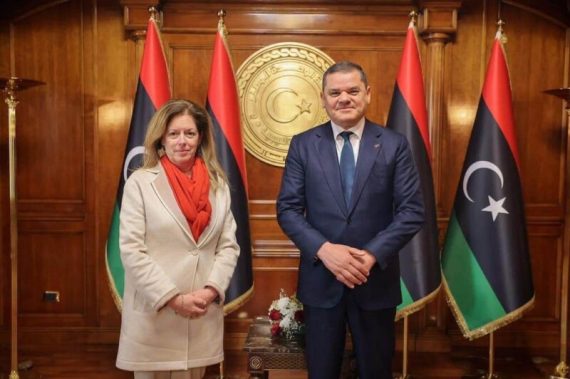M
ohamed Auajjar, the chair of the Independent Fact-Finding Mission on Libya (FFM), led a three-year investigation by the UN Human Rights Council to investigate human rights abuses committed by all parties to the conflict in Libya since 2016.
The mission urged the Libyan authorities to cooperate more closely to uncover the truth behind the widespread crimes committed against both Libyans and migrants in the country.
According to the FFM, there are reasonable grounds to believe that crimes against humanity have been committed. These crimes include arbitrary detention, murder, torture, rape, enslavement, sexual slavery, extrajudicial killings, and enforced disappearances.
The EU’s indirect support for human rights abuses in Libya
During the course of its investigation, the UN fact-finding mission visited Libya and urged local authorities to cooperate more extensively to establish the truth about these heinous and massive crimes.
The mission focused on identifying human rights violations and breaches of international humanitarian law in various Libyan cities.
FFM investigator Chaloka Beyani has stated that the European Union’s support for Libyan authorities has “aided and abetted rights breaches against migrants.”
Beyani clarified, “We’re not saying that the EU and its member states have committed these crimes. The point is that the support given has aided and abetted the commission of the crimes.”
The EU’s response to allegations
In response to these allegations, European Union Spokesman for Foreign Affairs and Security Policy Peter Stano denied that the EU intends to “push and keep migrants in Libya.”
Stano emphasized that the EU “does not finance any Libyan entity and does not give material funds to partners in Libya.”
Despite the EU’s denial of involvement, the report highlights its indirect support in facilitating these human rights abuses. This raises concerns about the EU’s role in the ongoing crisis in Libya and the subsequent impact on human rights and international law.
Survivors speak out
The report found that the violations were carried out under the nominal or actual control of Libya’s Directorate for Combating Illegal Migration, the Libyan Coast Guard, and the Stability Support Apparatus.
According to the report, the FFM asserts that the “European Union and its Member States, directly or indirectly, provided monetary and technical support and equipment,” including boats to the Libyan Coast Guard and the Directorate for Combating Illegal Migration for the interception and detention of migrants.
The report revealed alarming crimes against humanity in Libyan detention centers, where migrants faced torture, rape, enslavement, and starvation.
One victim who was held in Maya, Ayn Zarah, and Gharyan detention centers said, “Our concern is not dying in the water, but our concern is to go back to the prison where we will be oppressed and tortured by guards.”
The report disclosed numerous survivors and witnesses of rape cases, indicating that such crimes were widespread and routinely experienced in detention centers.
Pregnancies resulting from rapes in detention centers were frequently observed according to the report, and women often gave birth without access to professional medical assistance.
In this regard, victims often became aware of being sold or bought only when confronted with new circumstances and abuse. Enslavement, including sexual slavery, occurred in detention centers, and the mission found evidence of such crimes in Sabratha and Bani Walid.
The report documented cases of migrants forced to work in factories, construction, and agriculture.
“In a case of enslavement and forced labor, a child from Mali was taken to a farm and forced to work with animals, only to be told he had been bought when he asked to leave.”
Recommended
Libyan authorities’ response
Suleiman Al-Hariri, the chairman of the Internal Affairs Committee of the House of Representatives in Libya, stated that the report is “biased, lacks objectivity, and deliberately distorts the image of Libya.” In a statement published by the parliament, he went on to state, “The report also holds Libya alone responsible for illegal migration flows.”
The statement added that the report “ignored the difficult conditions that Libya is going through, and the fragility of government institutions.” “It is difficult for Libyan institutions to provide the needs of hundreds of thousands of illegal immigrants in the country,” it stated.
In the same vein, Hariri has accused the European Union of being responsible for the migration crisis in Libya. According to him, the EU’s policy of rescuing migrants at sea and returning them to Libya has led to the accumulation of hundreds of thousands of migrants in the country, despite repeated warnings from Libyan authorities about their inability to handle such a large influx.
Hariri also pointed out the EU’s absence in helping to protect Libyan borders, especially in the south.
He emphasized the Anti-Immigration Agency’s struggles to secure quality of life and medical care for the continuous flow of migrants and attributed the humanitarian crisis to the weakness of voluntary repatriation and resettlement programs in other countries.





